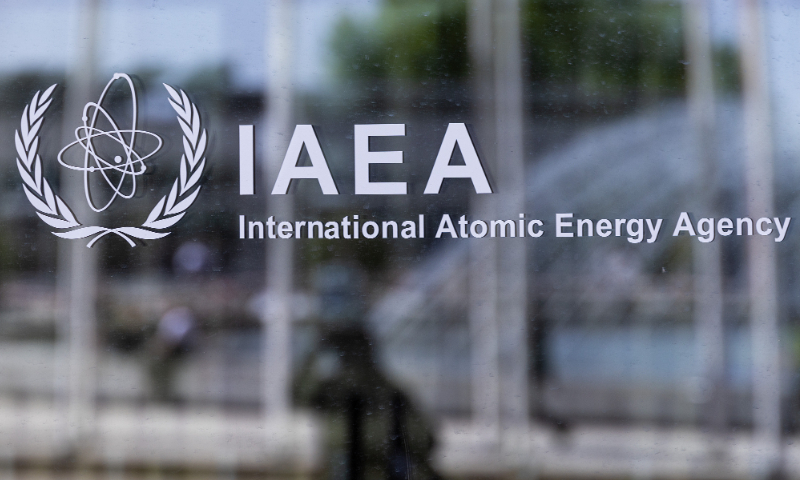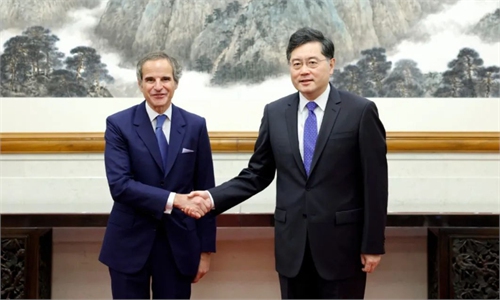IAEA chief says concerns about Japan's dumping of nuclear-contaminated water taken seriously

Photo: VCG
When responding to concerns about Japan's dumping of nuclear-contaminated water on Monday, Rafael Mariano Grossi, International Atomic Energy Agency (IAEA) director general, said nothing that is not in perfect compliance with international safety standards will happen. Grossi told the Global Times and other media outlets that the IAEA takes all concerns seriously, looks at them in detail and provides feedback from a technical perspective.
Grossi is visiting China for the first time since assuming office as IAEA chief in 2019. During the tour, he met with Zhang Kejian, chairman of the China Atomic Energy Authority (CAEA), and will conduct on-site inspections of some important nuclear facilities in China. He will also sign relevant agreements with the China Atomic Energy Authority in areas such as small modular reactors and nuclear power infrastructure development.
As the world's central intergovernmental forum for scientific and technical co-operation in the nuclear field, the IAEA works for the safe, secure and peaceful use of nuclear science and technology. The safe use of nuclear energy has always been a key focus of the IAEA. The recent unilateral decision by the Japanese government to discharge nuclear contaminated water from the Fukushima nuclear plant into the ocean has raised strong concerns and opposition from the Japanese people and the international community. The stance of the IAEA toward Japan's actions and the related response measures have thus become a focal point.
"The fact that there is an accumulation of [nuclear-contaminated] water around the stricken nuclear power plant in Fukushima has caused anxiety. We take this very seriously and we won't ignore any of these concerns. This is why when Japan requested the assistance of the IAEA, as a member state of the IAEA, I went to Tokyo and discussed it with the then prime minister," Grossi said. "When it comes to this issue of the water, we have been there making the necessary environmental analysis, reviewing the technologies that they intend to apply, looking at how the Japanese regulator is going to be controlling all of these."
The IAEA intends to be useful not only to Japan, but to the international community at large. It will take all concerns seriously, look at them in detail and provide feedback from a technical perspective, Grossi said.
During the meeting with Grossi on Monday, Zhang emphasized that the discharge of Japan's Fukushima nuclear-contaminated water into the sea is a major issue related to the global marine environment and public health. The IAEA is the most important intergovernmental international organization in the nuclear field. It is hoped that the technical working group of the IAEA will uphold an objective, impartial and scientific attitude to conduct a rigorous review of Japan's dumping plan to ensure that the final assessment report fully reflects the opinions of experts from all sides and does not simply endorse Japan's discharge plan.
On Tuesday, Chinese State Councilor and Foreign Minister Qin Gang met with Grossi. Qin urged the IAEA to perform its duties in an objective, fair and professional manner, and to resolutely resist actions stretching national security or interfering with and undermining the normal order of international cooperation. Qin also said the IAEA should properly handle the nuclear submarine cooperation between the US, the UK and Australia as well as Japan's nuclear-contaminated water disposal issue.
Grossi said that the IAEA is committed to preventing nuclear proliferation and respecting member states' decisions, and will remain neutral and conduct relevant consultations on US-UK-Australia nuclear submarine cooperation in a transparent manner. He also made it clear that the IAEA will not endorse any country's decision to dump nuclear-contaminated water into the sea and will not agree to any activities that violate international safety standards.

